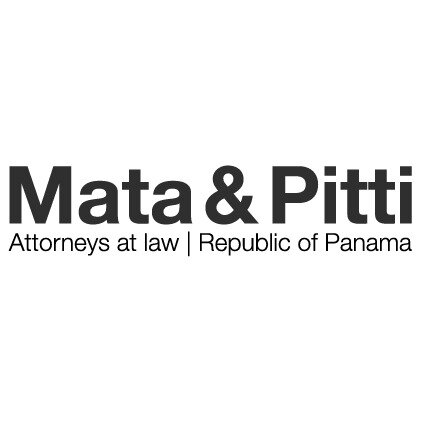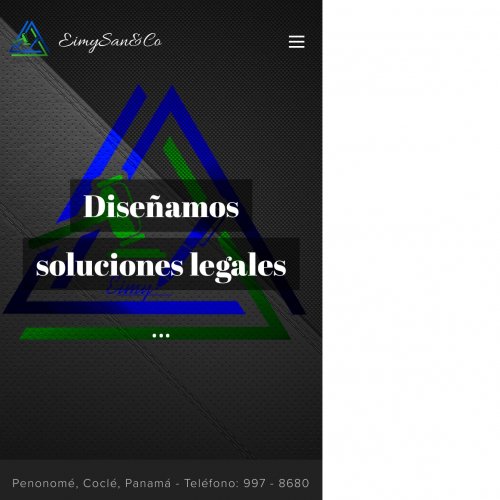Best Renewable & Alternative Energy Lawyers in Panama
Share your needs with us, get contacted by law firms.
Free. Takes 2 min.
Or refine your search by selecting a city:
List of the best lawyers in Panama
About Renewable & Alternative Energy Law in Panama
Panama has made significant strides in promoting renewable and alternative energy sources due to its commitment to environmental sustainability and energy independence. The country's renewable energy landscape primarily includes hydropower, wind, solar, and biomass. Government incentives and a robust regulatory framework support clean energy investments and aim to reduce reliance on fossil fuels. As Panama seeks to diversify its energy matrix, businesses and individuals face various legal considerations when entering this dynamic market. Understanding the laws and regulations is crucial for those interested in developing, operating, or investing in renewable and alternative energy projects in Panama.
Why You May Need a Lawyer
Engaging in the renewable and alternative energy sector often involves navigating complex legal and regulatory requirements. Here are some common situations where you may need legal assistance:
- Drafting, reviewing, or negotiating contracts for energy projects
- Obtaining permits, licenses, and authorizations for renewable energy facilities
- Ensuring compliance with environmental regulations and incentives
- Resolving land acquisition and property rights issues
- Representation before governmental and regulatory bodies
- Participating in public tenders and procurement processes
- Handling disputes related to energy generation, distribution, or interconnection
- Advising on investment structures and tax incentives
Local Laws Overview
Panama has implemented several laws and regulations to encourage renewable and alternative energy. Some key legal aspects include:
- Law 6 of 1997 - Establishes the regulatory framework for the electricity sector, opening the market for private investment
- Law 37 of 2013 - Promotes wind energy development by providing special incentives for wind power projects
- Law 44 of 2011 - Encourages solar energy and provides tax benefits and exemptions for related projects and components
- Environmental Impact Assessment Regulations - Mandatory assessments for new energy projects to ensure environmental protection
- Regulatory bodies such as the National Public Services Authority (ASEP) and the Secretariat of Energy oversee compliance and sector development
- Public tenders and procurement rules for energy projects, ensuring transparency and competitiveness
- Grid interconnection requirements for renewable energy installations
Frequently Asked Questions
What types of renewable energy are widely used in Panama?
The most common renewable energy sources in Panama are hydropower, wind, solar, and biomass. Hydropower dominates the sector, but wind and solar are growing rapidly due to government support.
Are there tax incentives for renewable energy projects?
Yes, Panama offers tax benefits and exemptions for certain renewable energy projects, especially under laws specific to wind and solar energy. Advantages can include VAT exemptions and import duty relief.
Do I need a license to develop a renewable energy project?
Yes, you must obtain the appropriate licenses and permits from authorities such as ASEP and comply with environmental regulations before commencing construction or operation.
How does land acquisition work for energy projects?
Land acquisition may involve leasing or purchasing property. Legal due diligence is essential to verify ownership, resolve any land disputes, and secure clear title for project development.
Is an Environmental Impact Assessment required?
Yes, most renewable energy projects must undergo an Environmental Impact Assessment to ensure they comply with environmental protection guidelines and regulations.
Who regulates the renewable energy sector in Panama?
The main regulatory bodies are the National Public Services Authority (ASEP) and the Secretariat of Energy. These agencies grant licenses, monitor compliance, and create policy guidelines.
What is the process for connecting a renewable project to the national grid?
Grid interconnection requires technical studies, agreements with utilities, and adherence to regulatory standards set by ASEP. The process can involve negotiations and infrastructure upgrades.
Can foreign investors participate in renewable energy projects in Panama?
Yes, Panama welcomes foreign investment in renewable energy. Investors must comply with local laws, obtain permits, and can benefit from various incentives designed to attract international participation.
Are there local content requirements for renewable energy equipment?
Some government programs may encourage the use of local materials or labor, but most legal frameworks focus on project compliance, safety, and environmental standards rather than strict local content rules.
What happens if there is a dispute related to a renewable energy contract?
Disputes can be settled through negotiation, mediation, or arbitration. It is important to have clear dispute resolution clauses in contracts and to seek legal guidance when conflicts arise.
Additional Resources
If you are seeking legal advice or information on renewable and alternative energy in Panama, these organizations and resources may be helpful:
- National Public Services Authority (ASEP): Main regulator for electricity and energy services
- Panama Secretariat of Energy: Develops and implements national energy policies
- Ministry of Environment: Oversees environmental regulations and impact assessments
- Panama Chamber of Renewable Energies (CAPER): Industry association for renewable energy stakeholders
- National Investment Promotion Agency (PROPANAMA): Supports local and foreign investors
Next Steps
If you need legal assistance in renewable and alternative energy in Panama, you should:
- Identify your project’s goals and specific legal needs
- Gather all relevant documentation, such as property titles, business licenses, or project plans
- Consult with a lawyer who specializes in energy law and is familiar with Panama’s regulatory environment
- Discuss the scope of services, fees, and timeline with your legal advisor
- Stay informed about regulatory updates and continue compliance throughout your project’s lifecycle
Lawzana helps you find the best lawyers and law firms in Panama through a curated and pre-screened list of qualified legal professionals. Our platform offers rankings and detailed profiles of attorneys and law firms, allowing you to compare based on practice areas, including Renewable & Alternative Energy, experience, and client feedback.
Each profile includes a description of the firm's areas of practice, client reviews, team members and partners, year of establishment, spoken languages, office locations, contact information, social media presence, and any published articles or resources. Most firms on our platform speak English and are experienced in both local and international legal matters.
Get a quote from top-rated law firms in Panama — quickly, securely, and without unnecessary hassle.
Disclaimer:
The information provided on this page is for general informational purposes only and does not constitute legal advice. While we strive to ensure the accuracy and relevance of the content, legal information may change over time, and interpretations of the law can vary. You should always consult with a qualified legal professional for advice specific to your situation.
We disclaim all liability for actions taken or not taken based on the content of this page. If you believe any information is incorrect or outdated, please contact us, and we will review and update it where appropriate.
Browse renewable & alternative energy law firms by city in Panama
Refine your search by selecting a city.

















